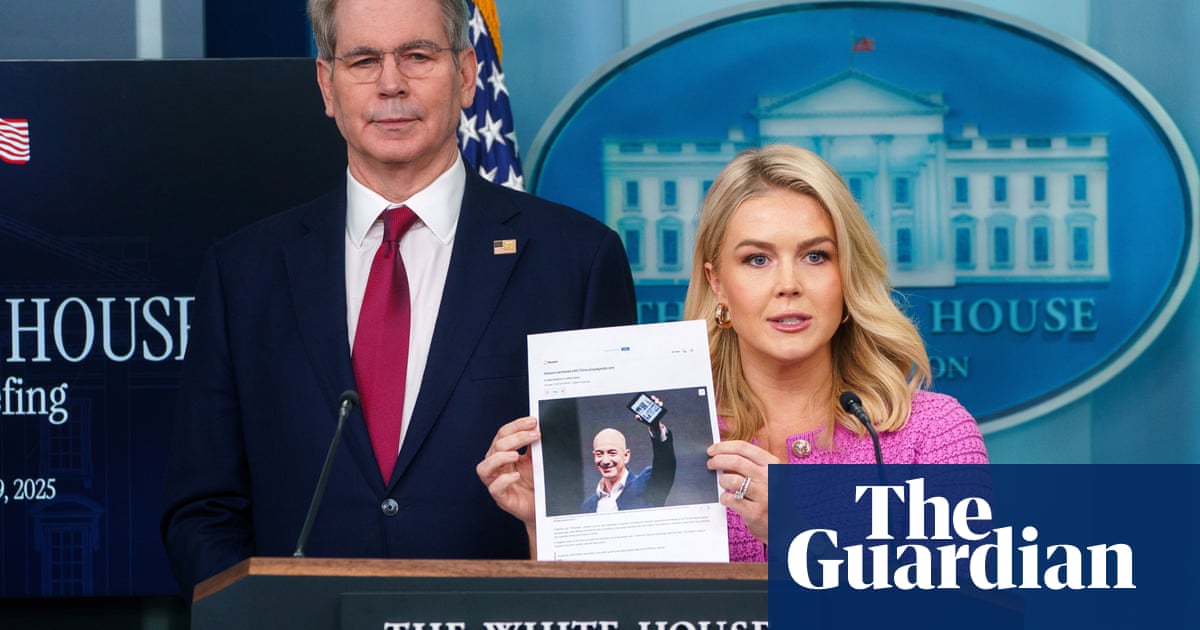The article highlights the White House's criticism of Amazon regarding its alleged plan to disclose the costs of tariffs imposed during Donald Trump’s presidency. This situation underscores the intersection of corporate actions, political rhetoric, and consumer finance.
Political Motivations Behind the Statement
The White House labeled Amazon’s actions as “hostile and political,” suggesting an effort to frame the company’s transparency regarding tariffs as a politically charged move. By questioning why Amazon did not take similar steps during the Biden administration, the administration appears to deflect criticism away from its current economic challenges, including inflation. This tactic may serve to rally support for the administration by emphasizing a narrative of accountability and transparency in corporate practices.
Public Perception and Impact
The intent seems to be to shape public perception around Amazon and its pricing strategies while reinforcing the administration's stance on domestic products. By framing Amazon's potential actions as opportunistic, the White House may be attempting to foster a sense of patriotism, encouraging consumers to choose American-made products over imports. This aligns with broader economic narratives that advocate for local industry support amid rising costs.
Possible Concealment of Issues
The emphasis on Amazon could be diverting attention from other pressing economic issues, such as inflation rates and supply chain disruptions that have affected many sectors. By targeting a high-profile company like Amazon, the administration may be attempting to distract the public from economic challenges it has faced.
Manipulative Aspects
The rhetoric used by the White House could be seen as manipulative, particularly in the way it frames Amazon's actions. By labeling them as "hostile," it positions Amazon as an antagonist in the political landscape. This language may influence public sentiment negatively towards Amazon while simultaneously bolstering the administration's image as a defender of consumers against corporate practices.
Reliability of the Information
The reliability of the report depends on the sources cited and the context provided. Given that the information comes from a report by Punchbowl News, which references unnamed sources, there may be validity to the claims. However, the lack of direct comments from Amazon adds a layer of uncertainty to the narrative.
Societal and Economic Implications
The ongoing tensions between the White House and major corporations like Amazon reflect broader themes in U.S. economic policy and consumerism. This situation could lead to increased scrutiny of e-commerce practices and may influence consumer behavior, potentially impacting Amazon's stock and market position. If consumers are encouraged to buy American, this could shift purchasing patterns away from platforms that rely heavily on imported goods.
Targeted Communities
The article may resonate more with communities that prioritize local production and are concerned about the implications of foreign tariffs. It seeks to engage consumers who value transparency and accountability from large corporations, potentially appealing to those who support nationalist economic policies.
Market and Global Influence
The news could have ramifications for global markets, particularly in the retail and tech sectors. Investors may react to the implications of the tariffs on Amazon and similar companies, affecting stock prices. As a significant player in e-commerce, any shifts in Amazon's business model or public image could reverberate through the market.
Geopolitical Context
While the article does not directly address global power dynamics, it reflects the ongoing economic tensions linked to trade policies initiated during the Trump administration. The discussion of tariffs is particularly relevant as nations navigate post-pandemic recovery and seek to balance domestic production with international trade.
Artificial Intelligence Involvement
The writing style appears straightforward and journalistic, suggesting human authorship rather than AI-generated content. However, if AI were utilized, it might have influenced the structuring of the article or the choice of language to evoke particular emotional responses. The overall narrative seems to guide readers towards a specific viewpoint, highlighting the potential for AI to shape public discourse subtly.
In summary, the article presents a politically charged narrative that seeks to influence public perception of Amazon while potentially deflecting attention from broader economic issues. Its reliability hinges on the sourcing of claims, and it raises questions about the motivations behind the White House's statements.
